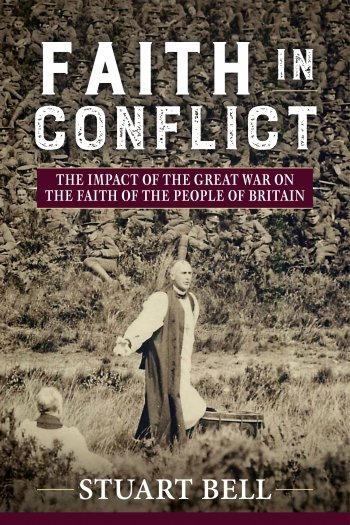-
Załączniki bezpieczeństwa
Załczniki do produktuZałączniki dotyczące bezpieczeństwa produktu zawierają informacje o opakowaniu produktu i mogą dostarczać kluczowych informacji dotyczących bezpieczeństwa konkretnego produktu
-
Informacje o producencie
Informacje o producencieInformacje dotyczące produktu obejmują adres i powiązane dane producenta produktu.HELION
-
Osoba odpowiedzialna w UE
Osoba odpowiedzialna w UEPodmiot gospodarczy z siedzibą w UE zapewniający zgodność produktu z wymaganymi przepisami.
It may seem obvious that the Great War, with its immense cost in terms of lives lost and injuries of body and mind incurred, must have had a significant impact on the religious faith of the British people. There is much anecdotal evidence to support that perception, but how typical of the wider population of combatants and civilians were those stories? In Faith in Conflict, Stuart Bell examines a wide range of published and archival sources to explore how the war affected the beliefs of the churchgoers of wartime Britain, as well as the majority who rarely attended church, but who believed in God and in the afterlife. The language which they heard from the pulpits and the hymns that they sang expressed a variety of responses. Undergirding everything was a firm belief that God was on the side of Britain - a nation divinely chosen to ensure the triumph of right over military might. Faith in Conflict explores how ordinary soldiers pondered how an all-powerful God could allow such carnage and shows that the well-known First World War fatalism was the least problematic response to the apparent randomness of falling shells. The language of the 'God of Battles' and 'Lord of Hosts' is analysed to show how confidence in divine support was founded on a belief that Britain was, like the Israel of the Old Testament, fighting with God’s support. Two particular features of wartime faith are identified: the first is the practice of praying for the dead, which very soon after the start of the war, became almost universal across the Church of England; the second is the idea of a suffering God, which was promoted by the famous chaplain Geoffrey Studdert Kennedy (also known as 'Woodbine Willie'). He argued that rather than a 'passionless potentate', the only understanding of God which made moral sense in the midst of the fighting was a 'comrade God' who wept and shared in his children’s suffering. Stuart Bell shows how the language of chivalry and martyrdom was used to express both the country’s confidence in the righteousness of the cause and the belief that those who died in what was a Holy War were assured of eternal salvation. The memoirs of five soldiers - representative of a wide spectrum of faith - are examined; finally, he explores the reasons for the very limited influence of the war on religious practice. 'This book is essential reading for anyone interested in the First World War and its impact on religious faith. Stuart Bell carefully examines a range of sources, including hymns, local newspapers, letters, war diaries, the theology of G Studdert Kennedy, memorial services and other liturgical material, and he comes to the striking conclusion that the influence on faith was limited. This undermines and replaces what has been the widely accepted view on the effects of the War on religious faith. Bell’s elegantly written exploration of religious attitudes is characterised by thoroughness, even handedness and sound judgment, and the book holds the reader's attention from first to last'. Professor Frances Knight, Department of Theology and Religious Studies, University of Nottingham.








